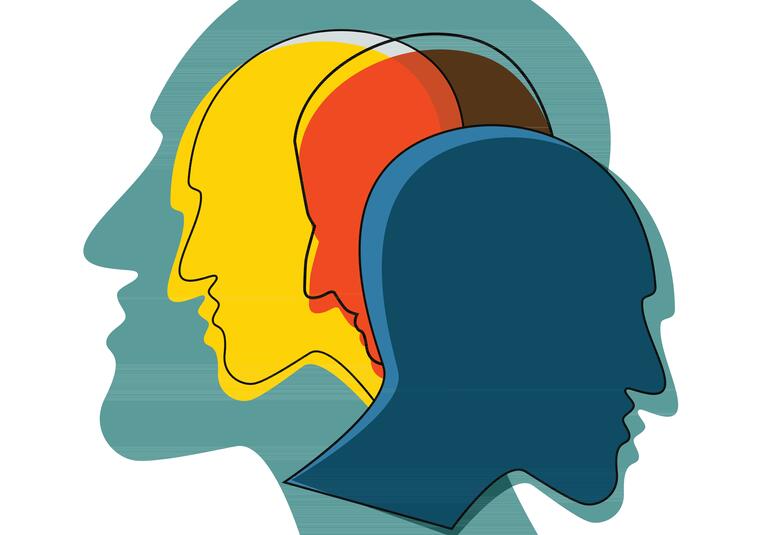Antibodies against the sensory neuropeptide calcitonin gene‑related peptide (CGRP) are showing promising results for preventive treatment of migraine. What about when they are used in the acute migraine attack? Results from RELIEF, the first study to address this question, were presented at EAN2021 Virtual.
Adult patients with >1‑year history of migraine were eligible for RELIEF if they experienced 4 to 15 monthly migraine days (MMDs) during the past 3 months. Patients (n=480) were randomized to a single injection of anti-CGRP antibody or placebo administered within 1 to 6 hours of qualifying migraine onset, completing an e‑diary until a new migraine was reported. Mean MMD at baseline was 7.2; mean duration of qualifying migraine 3.7 hours; and severity of qualifying migraine 55% severe versus 45% moderate. The commonest most bothersome symptom (MBS) with qualifying migraine was photophobia.
Relieves acute symptoms
Roger Cady (Lundbeck Seattle BioPharmaceuticals, Inc., Bothell, WA, USA) demonstrated that anti‑CGRP offers relief of acute symptoms as well as preventive efficacy, achieving statistical significance versus placebo on all pre‑specified primary and secondary endpoints1.
Anti‑CGRP offers relief of acute symptoms as well as preventive efficacy
Co‑primary efficacy endpoints:
- Time to headache pain freedom (HPF)
- Time to absence of MBS
Secondary efficacy endpoints:
- HPF at 2 and 4 hours
- Absence of MBS at 2 and 4 hours
- Use of rescue medication within 24 hours
Median time to HPF was 4 hours compared to 9 hours with placebo (hazard ratio [HR] 1.54; 1.20, 1.98; p=0.0006). Median time to absence of MBS was 2 hours versus 3 hours with placebo (HR 1.75; 1.41, 2.19; p=0.0006). Patients also had significantly greater HPF and absence of MBS at 2 and 4 hours, compared to placebo, and less likely to use rescue medication within 24 hours (31.5% compared to 59.9%, p<0.0001). Treatment‑emergent adverse events occurred in 10% to 11% of patients in both groups, with the most common being hypersensitivity (5 anti‑CGRP patients, no placebo patients).
Improves patient‑reported outcomes
Median time to next migraine was delayed
Median time to next migraine was delayed (10 days anti‑CGRP versus 4 days placebo), and patient‑reported outcomes showed functionally important improvements at Week 4 said Anders Ettrup (H. Lundbeck A/S, Copenhagen, Denmark)2. Over double the patients with anti‑CGRP felt ‘much improved’ or ‘very much improved’ on the Patient Global Impression of Change (59.3%) versus placebo (25.9%). Mean change from baseline in 6‑item Headache Impact Test total score was significantly greater (‑8.7; ‑10.1 to ‑7.3) compared to placebo (‑4.5; ‑5.9 to ‑3.1; p<0.0001).
Over double the patients with anti‑CGRP felt ‘much improved’ or ‘very much improved’ on the PGIC
Anti‑CGRP administered during the acute attack also improved the effectiveness of acute migraine medications over the following 4 weeks, with mean change from baseline of 2.1 (1.5, 2.6) in 6‑item Migraine Treatment Optimization Questionnaire total score compared to 1.2 (0.7, 1.7) for placebo (p<0.01).
Effects are rapid
Improvement in symptoms is seen rapidly
Jessica Ailani (Department of Neurology, Georgetown University Hospital, Washington DC, USA) showed that improvement in symptoms is seen rapidly3. There was separation from placebo (p<0.05) as early as 0.5 to 1 hour post start of injection in rates of HPF, absence of MBS, and absence of photophobia, phonophobia, and nausea individually. She suggested this indicated a peripherally driven and faster responding nausea mechanism independent of pain experience.
Our correspondent’s highlights from the symposium are meant as a fair representation of the scientific content presented. The views and opinions expressed on this page do not necessarily reflect those of Lundbeck.




